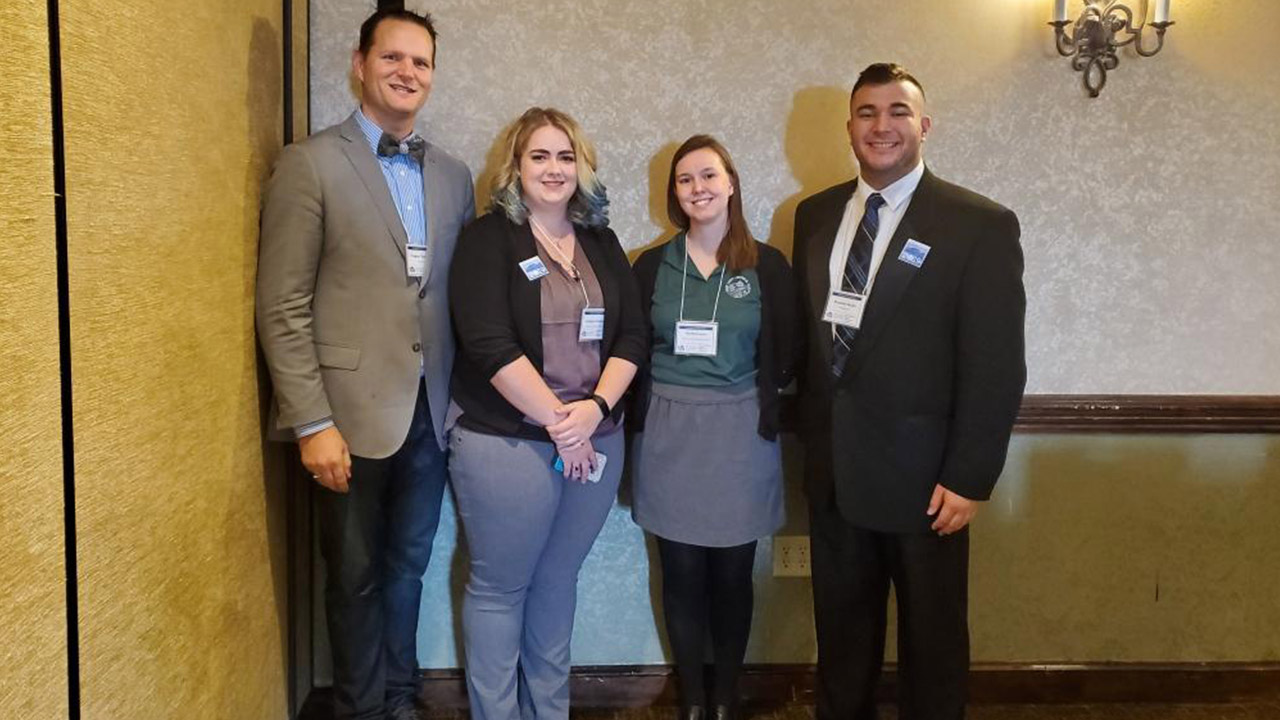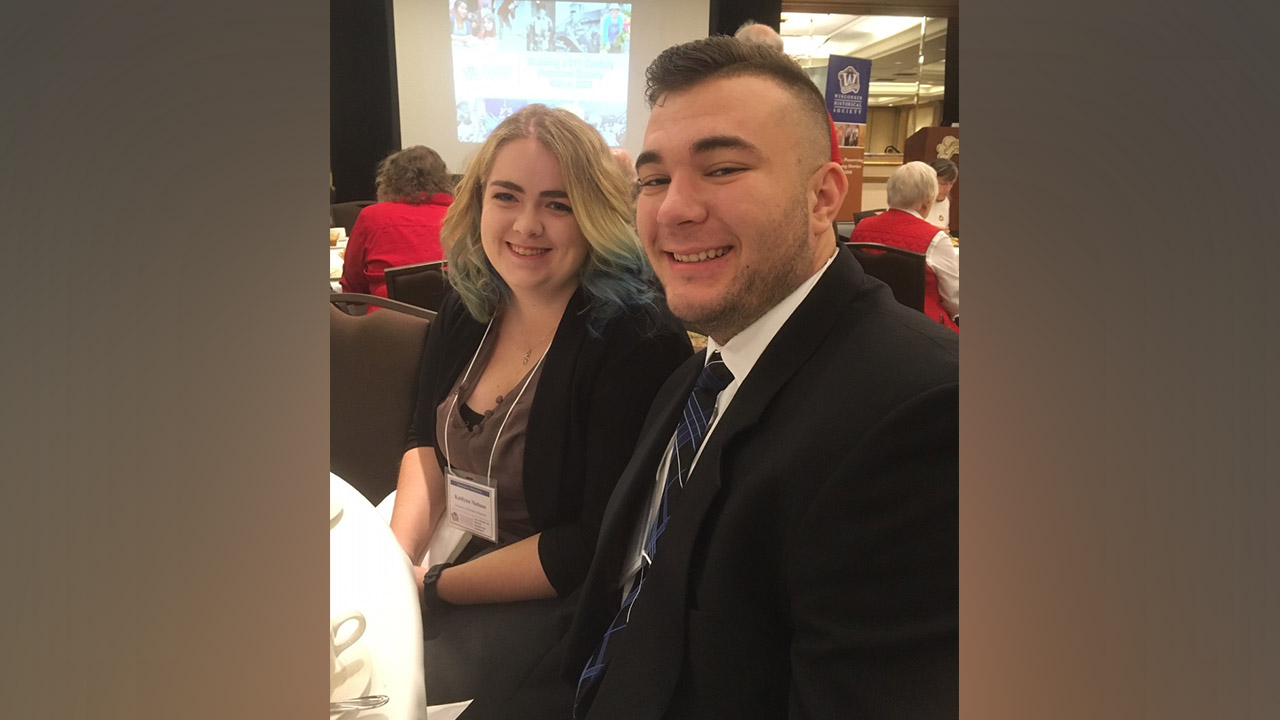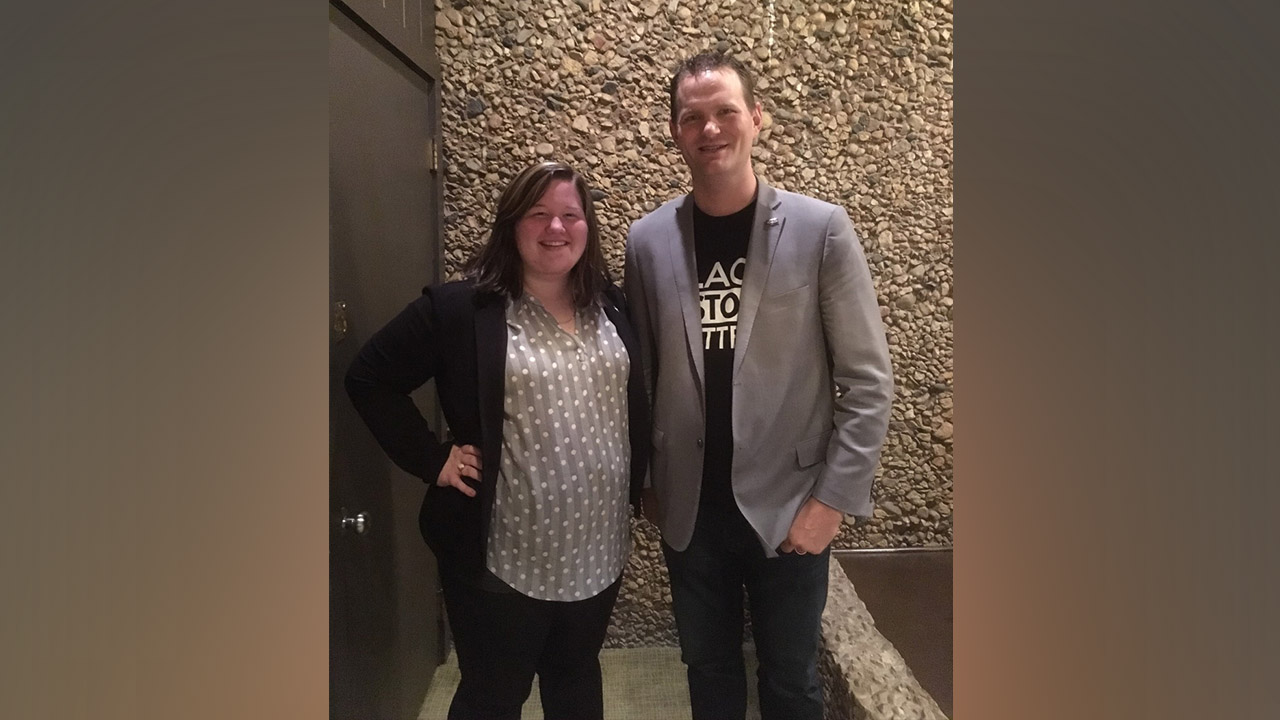


Two University of Wisconsin-Platteville students and a faculty member recently presented their research on chattel slavery in Wisconsin at the 13th annual Local History and Historic Preservation Conference in Lake Geneva, Wisconsin. The conference featured one and a half days of sessions, workshops, events, tours and opportunities for attendees to network with local history and preservation partners from across the state.
The UW-Platteville cohort was led by Dr. Gene Tesdahl, assistant professor of history at UW-Platteville, and community partner Dr. Rachel Lewis, director of the Grant County Historical Society in Lancaster, Wisconsin. UW-Platteville student presenters included Kaitlynn Niehaus, a senior English education major from Platteville, and Brandon Snyder, a sophomore history major with an emphasis in secondary education and a minor in social science comprehensive from Hazel Green, Wisconsin.
The group presented “Community Partnerships to Interpret Difficult Subjects," which drew from the students’ work in Tesdahl’s Wisconsin History course this past summer, explaining the painful stories of chattel slavery in Wisconsin and how communities can move forward together.
Along with celebrating the lives of Rachel, Maria and Felix, three African Americans whom John Rountree, founder of Platteville, illegally enslaved in Platteville in the 1830s, the group also explained how other museum professionals across Wisconsin can build partnerships to face difficult topics honestly in their own communities.
In addition, Niehaus and Snyder explained how they recently helped repair and restore Rachel’s 1854 headstone at Hillside Cemetery in Platteville. They also discussed how they are nearing completion on a window exhibit about early African American history in Grant County that will open at the Grant County History Museum in Lancaster in November.
“Learning about Rachel, Maria and Felix has changed me in ways I never thought I would change,” said Niehaus. “Dr. Tesdahl and our research have opened my eyes to the injustices that were happening in my hometown. Working on this project and presenting at the conference are going to be some of my most important academic memories. I hope others can gain something from our research.”
“Presenting at a history conference was exciting and breathtaking,” said Snyder. “Learning about all different areas of history, such as registering national places for underrepresented communities, collaborations between First Nations of Wisconsin, even learning about maritime archaeology, brought even more interest to my future career.”
Snyder said he believes the research team has solidified the foundation of getting Rachel’s voice heard. “I am hoping to learn from this experience to further research Rachel, Maria and Felix, or even find some other related topics to uncover,” he said. “From the beginning of scholarly research to the museum exhibit our independent study group created and is in the process of displaying, I think all of the work students put into any type of academic research does truly pay off.”
“It is always an honor to present with undergraduate students and community partners at the Wisconsin Local History and Historic Preservation Conference,” said Tesdahl. “We are able to share historical research with a larger audience and to offer approaches to doing history that museum professionals, docents and community members can use all over Wisconsin. It is humbling to share Rachel’s story and to urge others to restore justice to unjust chapters in their own history.”
“These collaborations are essential and mutually beneficial,” said Lewis. “Students get real world experience and an opportunity to really engage with the history of the place they call ‘home.’ The history the UW-Platteville students have researched is one that is not part of our collection. We don’t have the documents or material culture to tell this story. This means that without the students’ work, the Grant County Historical Society would have a very hard time telling this part of Grant County's history.”
The group also had an opportunity to visit with Winnie Redfearn, a 2019 UW-Platteville history and political science alumna from Hazel Green, Wisconsin, who is currently pursuing a Ph.D. in U.S. history with a focus on African American and Native American histories at UW-Madison. The research Redfearn and four classmates conducted in 2017 about African American lead miners in Wisconsin made the current research possible.